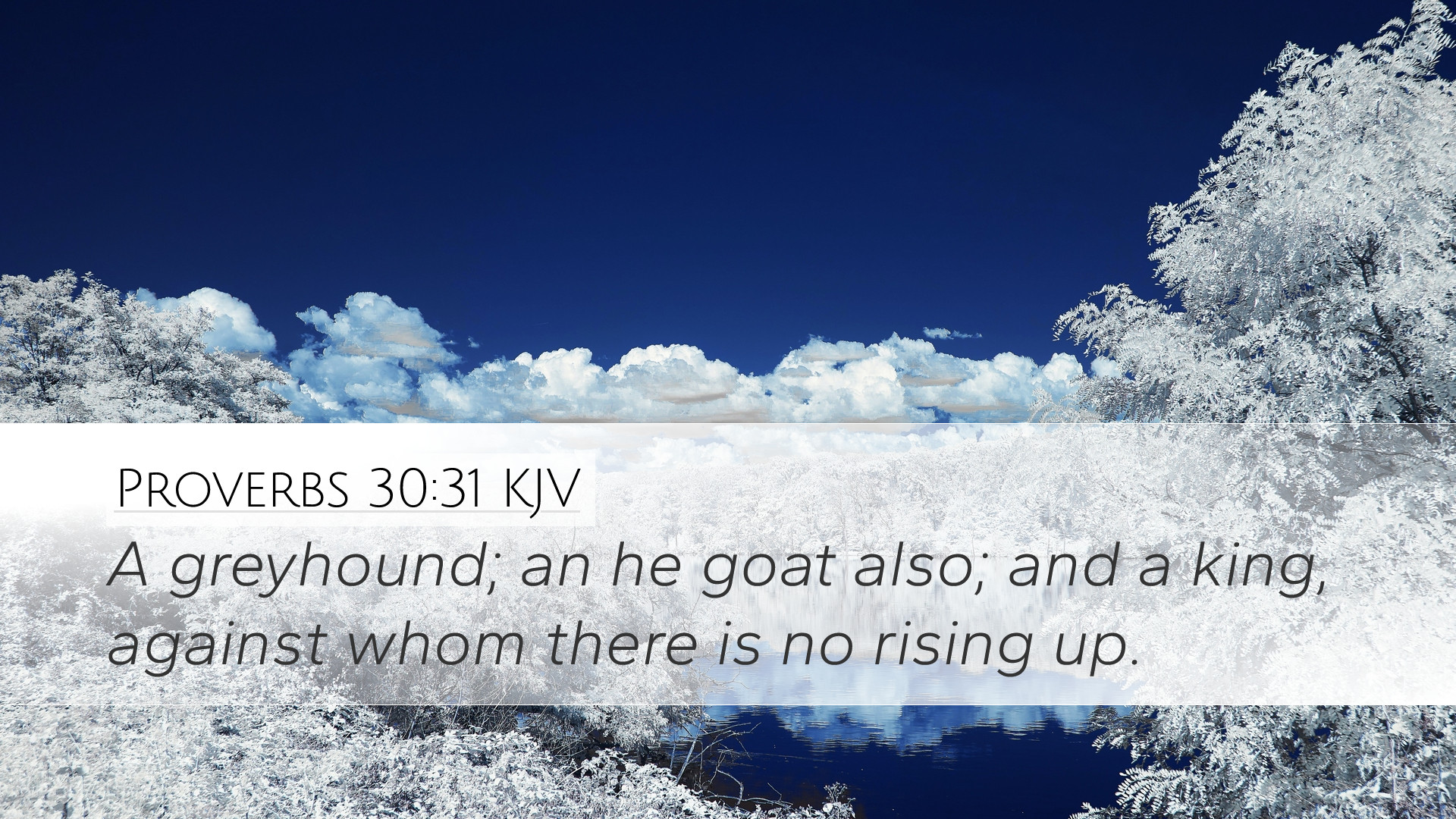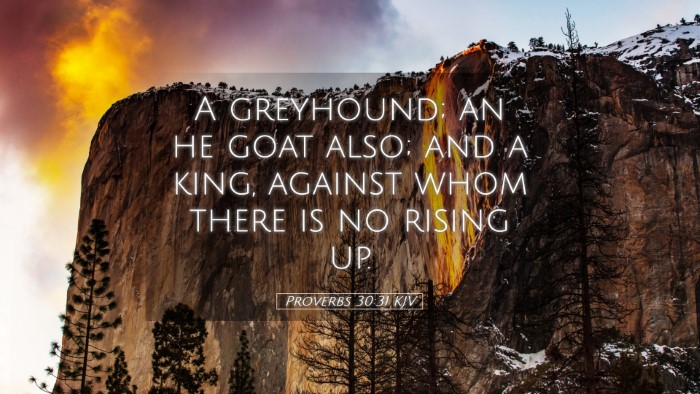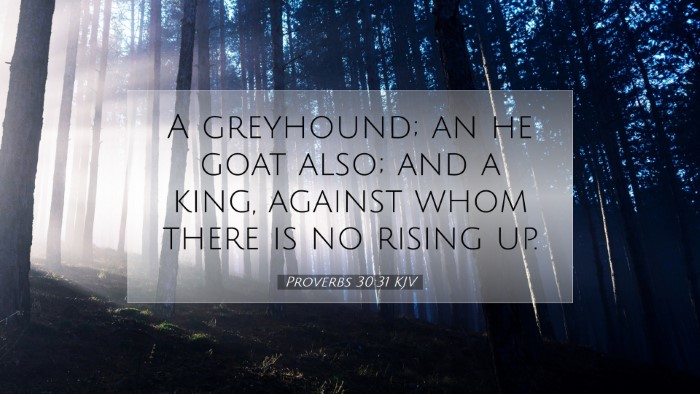Commentary on Proverbs 30:31
Proverbs 30:31 states: "The horseleach hath two daughters, crying, Give, give." This verse, part of the wider context of Agur's sayings, articulates a vivid metaphor about insatiable desire and the nature of greed.
Introduction
This verse is intended to provoke thought regarding the insatiable nature of certain desires and how they can manifest in human behavior.
Insights from Commentators
Matthew Henry's Commentary
Matthew Henry highlights that the "horseleach" symbolizes those who are never satisfied with what they have; they are always yearning for more. This insatiability reflects a broader truth about human greed and the longing for possessions, wealth, or recognition. The imagery suggests that just as the horseleach, or leech, seeks to consume blood, people with greedy hearts continually seek to acquire more.
Albert Barnes' Notes on the Bible
Albert Barnes interprets this verse by emphasizing the destructive nature of greed. He notes that the leech has two daughters, which can symbolize the dual aspects of desire and neediness—emotionally and materially. Barnes suggests that the demands of greed often lead to conflicts and a lack of fulfillment. The phrase "Give, give" signifies the constant clamor for more, a universal trait in humanity that can lead to spiritual depletion if unchecked.
Adam Clarke's Commentary
Adam Clarke elaborates on the symbolism of the horseleach as a picture of the grave, reflecting death's grasp on life. Clarke draws a parallel between the leech's incessant thirst and mankind's continual hunger for more than what is rightly theirs. He emphasizes the leech's call for "give," indicating how such demands stem from a heart unsatisfied with God's provisions. Clarke points out the spiritual dimension of this craving, suggesting that when people fail to understand their true needs, they may attempt to fill their emptiness with things that lead to destruction.
Theological Reflections
From a theological standpoint, Proverbs 30:31 serves as a warning against the perils of materialism and covetousness. Pastors and theologians often draw from this verse to discuss the broader implications of sin that leads to spiritual and moral decay. Herein lies a vital truth: when one's focus remains solely on gaining, they become oblivious to God's purpose and the needs of others.
Moral and Ethical Considerations
- Recognizing the Nature of Greed: Understanding that desire can easily spiral into greed is fundamental for spiritual growth.
- Contentment in God: The antidote to the greed illustrated by the leech is a heart at rest in God's provision, trusting in His sufficiency.
- Awareness of Relationships: Greed not only harms one's relationship with God but also distorts interpersonal relationships.
Practical Applications
For those in pastoral care or theological education, applying the insights from Proverbs 30:31 in practical situations is essential:
- Encouraging Generosity: Counteracting the leech-like nature of greed by fostering a culture of generosity within church communities.
- Teaching Contentment: Educating congregants on the importance of being content with what God provides, mirroring Paul’s exhortation in Philippians 4:11-13.
- Promoting Spiritual Health: Reminding individuals that true life is found in Christ, not in the accumulation of worldly goods.
Conclusion
In summary, Proverbs 30:31 encapsulates the dangers of insatiable desires through the metaphor of the horseleach. The insights drawn from Matthew Henry, Albert Barnes, and Adam Clarke illuminate not only the nature of greed but also provide practical wisdom for how to live a healthy spiritual life. Recognizing the hunger for more as a genuine human condition invites readers to seek fulfillment not in materialism but in a deeper relationship with God.


